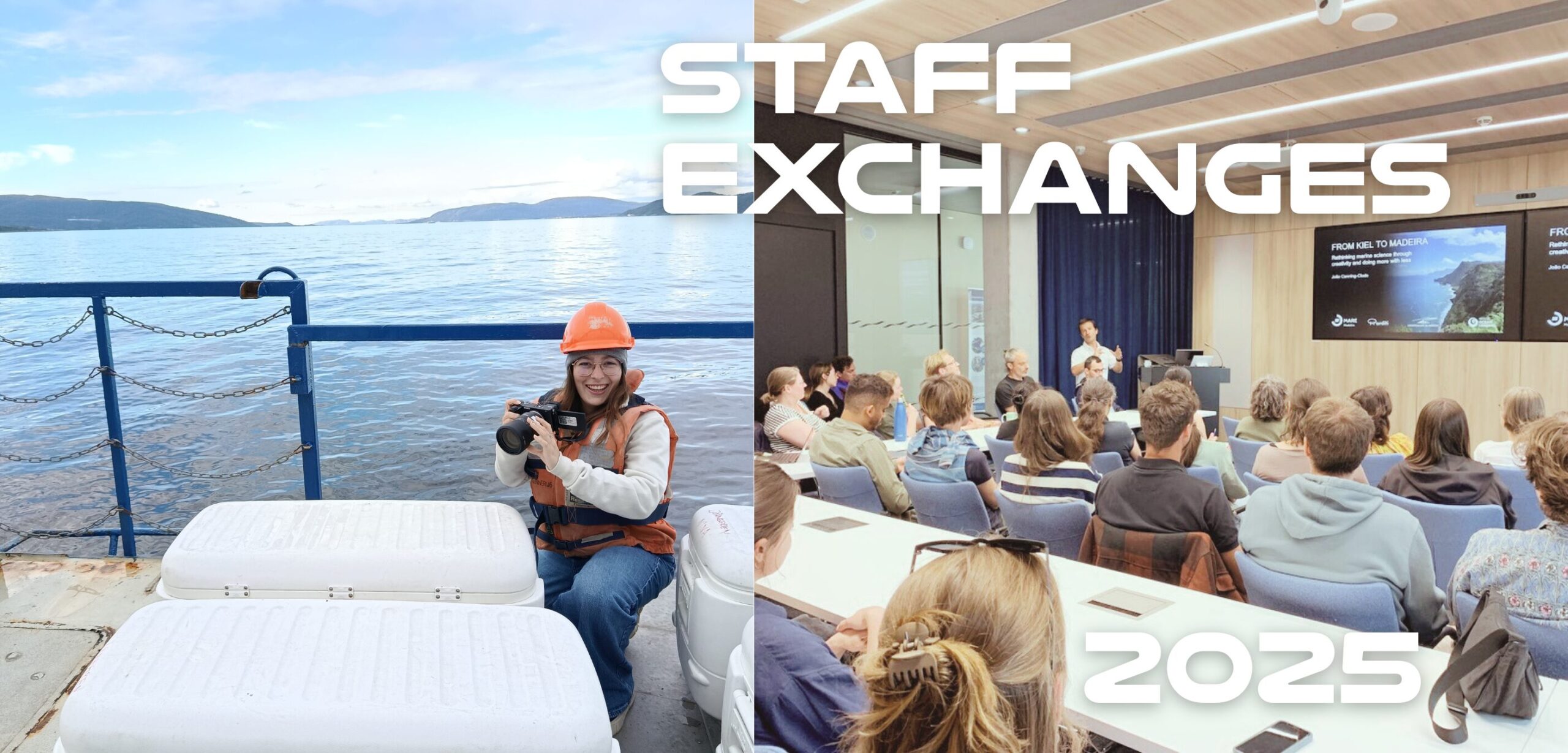
Lessons learned from our staff exchanges so far
By Diane Esson, with input from João Canning-Clode and Patrícia Nunes, Oct 2025
One important element of the TWILIGHTED project in terms of building institutional capacity for deep-sea research and raising the standards of institutional operations is its staff exchanges. These exchanges are for researchers, administrators and managers of all levels at MARE-Madeira / ARDITI to shadow their counterparts at leading European research institutions, share knowledge and/or work side-by-side on challenges. These exchanges may be with TWILIGHTED partners NTNU and GEOMAR or other leading deep-sea research institutions.
In our first year (Oct 2024 – Sept 2025), five MARE-Madeira members conducted staff exchanges: two senior scientists, two technicians and one member of the communications team. The first exchange was held in February at GEOMAR in Kiel with three members of MARE-Madeira’s Marine Technology and AI team to test low-cost innovations at deep-sea equivalent pressures in GEOMAR’s hyperbaric chamber. More information about this staff exchange can be found in this blog post.

MARE-Madeira equipment tested at GEOMAR’s facilities, including the low-cost auto-release system, MARS
The second exchange was carried out in June aboard the German RV Meteor in Nice, France and at GEOMAR in Kiel with MARE-Madeira’s Director João Canning-Clode. GEOMAR presented an opportunity for João to represent TWILIGHTED and strengthen relationships with high-level stakeholders at the UN Ocean Conference aboard the RV Meteor for the event “Bridging Science, Policy and Society for Sustainable Ocean Management in Africa and Future West African Marine Ecosystems (FUTURO)”.
“I had valuable exchanges with key figures from GEOMAR, including Prof. Arne Körtzinger, with whom I discussed potential synergies, particularly in relation to the upcoming TWILIGHTED training workshop in Cabo Verde (now postponed to early spring 2026). There was mutual interest in exploring a joint initiative or coordinated planning to align efforts between TWILIGHTED and FUTURO, especially considering both projects’ relevance for capacity building in Africa.” – João Canning-Clode
This event was followed by a trip to GEOMAR where João delivered a seminar titled “From Kiel to Madeira: Rethinking Marine Science Through Creativity and Doing More with Less.” The seminar covered João’s professional journey from doctoral work in Kiel to founding and leading MARE-Madeira, with a focus on innovation under budget constraints, international collaboration, and our vision for low-cost deep-sea exploration through TWILIGHTED. The session was in-person and well attended both by MARE-Madeira attendees in GEOMAR for the Scientific Training School and by GEOMAR staff.
“This mobility proved highly productive both in terms of visibility and strategic networking. It highlighted the value of in-person engagements to foster new connections, strengthen institutional ties, and position TWILIGHTED as a forward-thinking initiative for scalable, inclusive marine research.” – João Canning-Clode

Visiting the RV Meteor at UNOC3 in Nice, France and GEOMAR’s facilities in Kiel, Germany
The third and most recent exchange was carried out alongside the NTNU Technology Training School, where MARE-Madeira’s Community Engagement Officer, Patrícia Nunes, was able to develop her videography portfolio and witness highly effective communication strategies within a variety of NTNU teams. Over the two-week exchange, in addition to documenting the TWILIGHTED training, Patrícia had the chance to see underwater camera operations, briefings for coordinating crews before and after missions and novel technologies such as remote operating systems for operating equipment with mobile phone applications. Patrícia said that the level of communication in particular was eye-opening and could be applied to a range of activities in Madeira, beyond research missions. For example, we could apply similar briefings and role assignments to our community engagement events and workshops to improve the clarity and efficiency of our work.
“Every morning there was a briefing where the vessel crew and the researchers would revise the entire plan of the day, what the security measures would be, how the instruments were going to be manoeuvred so everyone was on the same page. It was a very clear, respectful and straight-to-the-point meeting.” – Patrícia Nunes
Patrícia also saw the immense potential of deep-sea imagery to inspire the public. The lifeforms in the deep are hidden from view and not accessible to SCUBA divers or the average person, so the role of photographers and videographers working side-by-side researchers are even more important to connect the broader community with these amazing lifeforms.

MARE-Madeira’s Community Engagement Officer building an understanding of deep-sea research, effective mission planning and communications in Norway
“The wonderful underwater images that Johanna, from NINA (Norwegian Institute for Nature Research), shared with us of the coral ecosystems that inhabit the Norway waters – I marvelled looking at those videos, full of color, opposite to what one may think that is down there. It looked just like the images I would see on a BBC or National geographic documentary and it was right there underneath us!”
Patrícia said the experience has inspired her afresh to share that feeling of discovery and wonder with other people through her own digital storytelling efforts at MARE-Madeira.
In total, the MARE-Madeira team spent seventeen days with TWILIGHTED partners at GEOMAR and NTNU to gain training and networking experiences relevant to their roles and career development. The opportunities to build meaningful connections face-to-face have further strengthened the relationships between our institutes and place us in good stead for future workshops, events and collaborations – in TWILIGHTED and beyond! We are grateful to the support from the EU that makes opportunities like this possible.
